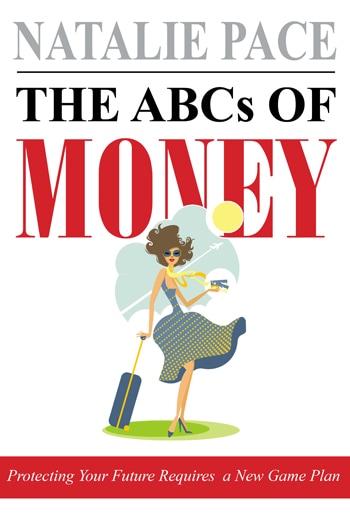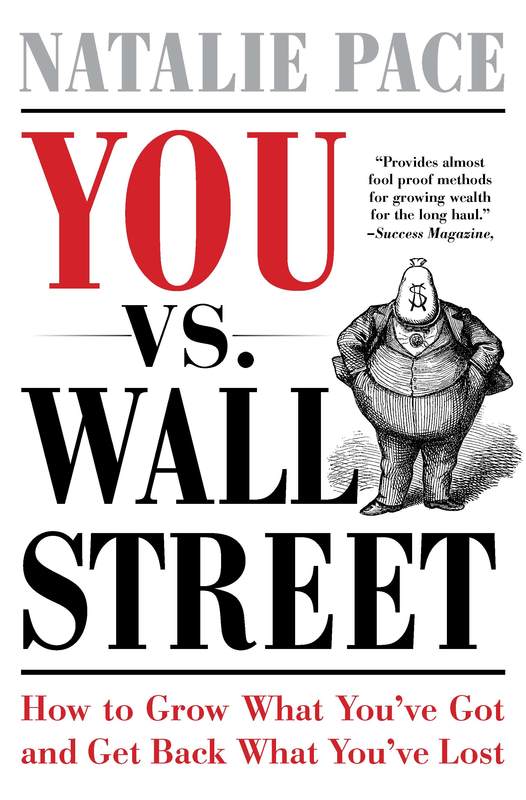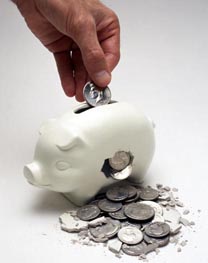|
In the updated 2017 nest egg pie charts, I have an important alert for the safe side. Bonds and money market funds are vulnerable. FDIC-insured cash is safer. Safe, income-producing hard assets that you purchase for a good price are best. Why do I say that and what does that mean? (Click to get your own personalized nest egg pie chart in my free web app.) Is there any safe investment that pays a good return (like 20-40%)?
Bonds are vulnerable. They have already begun losing value, and in the worst-case scenario they become toilet paper or illiquid (the airline industry, auto manufacturers and Greek bond “restructurings” are examples). In today’s Debt World, this is a real consideration. Read my blog, “The U.S. Treasury Secretary is Using Extraordinary Means to Pay Bills” for more information on the risks of investing during such a highly-leveraged time. There are two aphorisms to remember when it comes to bonds today. “I am more concerned about the return of my money than the return on my money,” Roy Rogers. “Never reach for yield.” It’s hard to know who first coined this one. (If you know, please Tweet me.) But it has been said by many a wise woman and man over the years. Money market funds now have redemption gates and liquidity fees. That means exactly what it sounds like. There could be times when you have to wait or pay to have access to your money. Cash is vulnerable, too. When there is a shift in global currency trends, it takes a lot more cash to buy things. Inflation can whip up out of nowhere. We’ve already experienced that in housing, where many markets are simply unaffordable to 90% of the population. So what are safe, income producing hard assets that you can purchase for a good price? Let me stress that every single word in that sentence counts. The first thing that you might be thinking is buying a house and renting it out on AirBnB. I’ve known many a exasperated landlord who would warn against it. You definitely have to know what you’re getting into, including renter rights, before you become an income-property owner. You’ll also need to set up a business entity to protect yourself, and account for expenses and payments to independent contractors. But income property is not the first or best hard asset to purchase! (Be sure to read this blog to the bottom.) Income Property When I did my first Investor Empowerment Retreat in Cocoa Beach, Florida back in 2013, as we were playing the Billionaire Game® on the beach at dawn, we noticed a group of guys dressed up like Vikings. They were there to launch a satellite at nearby Cape Canaveral, and were doing an early-morning team building exercise out on the sand. (Drinking? Just kidding.) Later that day, as we discussed the important considerations for purchasing a home or apartment building to rent out, I mentioned that I would like to buy a beach house in Cocoa Beach to rent out to Elon Musk and his satellite launch crew, when they come into town for space launches. At the time, the Cocoa Beach Beachfront Hilton rooms were going for about $99 a night. Today, just four years later, the rooms at the Cocoa Beach Hilton are often selling for $199 a night or higher. Why? Because there are so many satellite launches coming into town. Since 2013, another consideration has been rising into the mix for Florida real estate – sunny day flooding. The entire Eastern seaboard is vulnerable to rising sea levels. According to the former Secretary of the Navy Ray Mabus, the naval base at Norfolk, Virginia is at risk if we don’t slow the rate of sea level rise. Sarasota realtors must disclose that rising sea levels could become a problem in that area within the next 15 years. Clearly, you don’t want to just have a great idea, and then purchase something that you might be stuck with until it is covered in water. Climate change is one of the reasons why I didn’t purchase in Cocoa Beach, Florida in 2013. Real estate is not a liquid asset (or one that works well underwater). You have to have a 10-year horizon at minimum when you think about income property. There are a lot of homes in Cocoa Beach that were built during the first Space Race in the 1960s. They are pretty run down, and optimum for renovating. Due to high foreclosures and bank-owned property in the area, they could be a steal. Are they vulnerable to climate change? Is it worth it? These are some of the things that we are able to examine firsthand at the Florida retreat, which we aren’t able to do at the California retreats, where real estate has become unaffordable. Rethinking ROI Some of the best income-producing hard assets aren’t those that earn you an income, but are those that save you money. Life has become unaffordable for many Americans, due to the high cost of basic needs, like housing, transportation, gasoline, electricity and food. There are many ways that you can invest and save, literally, thousands of dollars every year in your annual budget. As just one example: If you purchase solar panels for $20,000, Take a tax credit for 1/3 of the costs, And your electricity costs drop to $30/month, from $300/month, It will take you four years to pay off the $13,200. Thereafter your “yield” or return on investment is 24.5%, with $3,240/annual savings on electricity. If you switch to an electric car and “fuel” it up with solar energy instead of gasoline, that could save you an additional $2,000 or more each year, putting the annual savings at $5,240 (or more), with a yield of 40% annually. You just don’t get anything close to that ROI on any bond. Even junk bonds only pay 6%. One important tip: always do an air-test on your home, insulate properly, and switch your light bulbs to LEDs, before you purchase your own energy system (like solar). Reducing your energy consumption is one simple trick that can cut your energy costs by up to 80% on its own! These are just a few examples of how learning The ABCs of Money that we all should have received in high school transforms our life. Most people report earning back the price of the retreat in the first few months in budget savings alone. One retreat attendee is saving $20,000 each year! That allows you to live a richer life today, provide far better for your future, take more bucket list vacations and sleep better at night. Wisdom is the cure. Join me for an intimate, empowering investor educational, boardroom retreat in the beautiful beach town of Cocoa Beach, Florida, June 10-12, 2017 for a life transforming, fun 3-days, where you’ll learn great strategies for protecting what you have, keeping more of what you earn and thriving with a well-designed, easy-as-a-pie-chart investment strategy! Register by March 31, 2017 to receive the best price. Get a great discount when you come with a friend. Call 310-430-2397 to learn more. Debt Ceiling Hit March 16, 2017. Treasury Secretary Uses Extraordinary Measures to Pay Bills. Today, while headlines focused on the Federal Reserve raising interest rates 25 basis points to a hair's breath over 0 (up to 1%), the U.S. debt continues to spiral out of control. The Debt Ceiling was hit again, on March 16, 2017. The U.S. Treasury Secretary has already begun using “extraordinary measures” to pay bills until the debt ceiling is raised (again). Analysts predict that tax revenues and financial tools could run out by August or September. (In the last few Debt Ceiling crises, they’ve held until October.) If the Debt Ceiling is lifted before the Extraordinary Means run out, then there won’t be much hoopla. If it isn’t, the U.S. is facing a potential credit downgrade from Fitch Ratings. According to a Fitch Ratings press release issued on March 15, 2017, “Fitch has previously made it clear that reaching the so-called "x date", when the Treasury's scope for extraordinary measures runs out, without raising the debt ceiling, is a negative U.S. sovereign rating trigger… In this scenario, Fitch would review the U.S. sovereign rating, and may judge these developments to be incompatible with AAA status.” The message to Congress and the current Administration couldn’t be more clear: raise the debt ceiling before fall, or risk the U.S. AAA rating. What’s a bit heartbreaking about this is how the debt-spiral is already affecting regular people. On December 8, 2016, the IRS issued a press release saying that there will be a delay on refunds for anyone who is claiming the Earned Income Tax Credit (EITC) and the Additional Child Tax Credit (ACTC). If the Debt Ceiling isn’t raised by “x date,” the U.S. will be late in paying Social Security, government employees, contractors, pensioners, etc. There is a bill in Congress to prioritize debt service and social security payments. Having the U.S. issue IOUs to government employees would be quite alarming at home and abroad. Thus, everyone expects the Debt Ceiling to be lifted before any of the fallout starts. However, that's not what happened last time, or the time before that. In 2015, Speaker John Boehner (R) had to get Democrats to raise the Debt Ceiling, and then he lost his job. In 2011, The U.S. Congress waited until hours before the Treasury ran out of money before raising the Debt Ceiling. On August 5, 2011, Standard and Poor's downgraded the U.S. credit as a result of that. gold soared. Stocks sank... until the currency printing machine cranked out more bills and loaned them out to the corporations (who bought back their own stock, prompting another Wall Street rise). As we all know from our personal budgets, borrowing from Peter to pay Paul isn't good husbandry. Public Debt is $20 Trillion. Total Debt is $66 trillion. Another astonishing fact is the U.S. public debt is an eye-popping $20 trillion, while the total U.S. debt and loans are an intergalactic $66 trillion (almost). That includes bank debt (including left over liabilities from the Great Recession), $12.6 trillion in consumer debt (housing, auto, student loans, credit cards), $6 trillion nonfinancial corporate debt, $3 trillion in state and local debt (not including employee retirement funds) and the public debt. Most people are just looking at the recent rally in the stock market as an indicator of the economy, without examining the fundamentals that are fueling that rise. There were bubbles in real estate before the Great Recession, and in Dot Coms before that recession. Both times, the headlines were screaming about all of the money that people were making in real estate and Internet stocks. Both times, there were reasons why this time was going to be different. In fact, the last two times that the stock market went eight years without a correction, investors lost more than half. The NASDAQ dropped 78% between 2000-2002, while the Dow Jones Industrial Average dropped 55% in the Great Recession (to a low of 6547!). Is the current bull market a true recovery with more potential, or is there something else going on? Is clear that the U.S. government is borrowing from Peter to pay Paul. (That’s why we have to keep raising the Debt Ceiling and borrowing more money to pay our bills.) Are corporations doing that, too? What is Financial Engineering? With interest rates near zero, companies can borrow money very cheaply. Apple, a company with over $246 billion in cash ($230 billion of it offshore), borrows at less than 1%, and uses the money to pay dividends and to buy back stock, without being taxed on their offshore income. Heavily indebted companies, like auto manufacturers and other legacy brands, can borrow at just 6%, even though many of them owe a lot more money than the company is worth. The companies then use that ‘free’ easy money to purchase their own stocks. Buybacks reduce the amount of shares outstanding, which makes the earnings per share go up, even if earnings are flat or negative. When the earnings per share goes up, the price to earnings ratio goes down, making the company look like a “good buy.” The one time that corporate buybacks were higher than they are now was in 2007. You got it, right before the Great Recession. Are We Living on Borrowed Time? The risks that accompany the kind of astronomical debt that the U.S. (and much of the developed world) is embroiled in, and having so many government agencies, people and corporations borrowing from Peter to pay Paul, is something that will impact you directly (if it hasn't already). The powers that be hope that we can just cycle through this period, much as we did post-World War II, another period of extremely high debt in the U.S. That time, we had massive innovation on our side, and the U.S. dollar had just replaced the British pound as the global reserve currency. The U.S. is still making products that the world loves (the Internet is a strong suit), but the global currency is now a basket, with many countries choosing to trade between themselves in their own currency. And GDP growth is barely breathing. The Atlanta Federal Reserve Bank is predicting that 1Q 2017 GDP growth will under 1%. The Bureau of Economic Analysis will release the advance estimates of 1Q 2017 GDP growth on April 28, 2017. We’ve seen quite a lot of tragedies that have occurred as a result of people, corporations, etc., borrowing from Peter to pay Paul. This “liar loan” mentality was the flaky foundation of the real estate meltdown in 2006. The auto manufacturing and airline industries have had most of the major companies experiencing slumping sales, increased costs and slim profit margins, resulting in Chapter 11 bankruptcy. MF Global, a financial services company helmed by Jon Corzine, a former Senator/Governor/chairman of Goldman Sachs, was a casualty of the Greek bond crisis. We don’t know the names or the stories of the investors who suffered financially in Detroit or Stockton, at the airlines, automakers or MF Global, bond and stock holders of AIG or banks in 2008, or any of the other corporate bankruptcies, like we do the victims of Bernie Madoff. However, they are likely as heartbreaking. And it is worth it to make sure that you don’t become one of them. How Long Do Investors Have Before the Next Downturn? Until the buyers dry up, and the sellers freak out about that. A credit downgrade by Fitch Ratings could spark that. Retail or other corporate bankruptcies could fire up the sellers. A terrible GDP report will spook buyers. Main Street investors always get the memo after Wall Street insiders. (Homebuilder CEOs sold hundreds of millions of dollars of their own stock starting in early 2005, when Main Street homebuyers were still in a frenzy.) Wall Street insiders know about the Fitch Ratings warning, about X date, about extraordinary means, etc., and are already planning their strategy based upon what happens in the DC beltway. That’s why you have to get a better plan now. If you wait for the headline to act, it will be too late. Which Companies, Cities, Etc. Will Be the First to Drop? Follow the money – or the lack of it… Any entity that is spending more than it earns, and amassing debt to pay bills, is vulnerable. Getting that information is actually as easy as a few clicks! Once you learn this, it is far less time and money than you are currently spending trying to get this info in the “news.” It’s all publicly available. You just have to know where to look. Never reach for yield. Preserving capital is paramount in a Debt World, followed by a policy of securing safe, income-producing hard assets that you purchase for a good price. This is easy-as-a-pie chart. (I have free web apps and bestselling books that can help. If you want to learn and implement these strategies now, attend my Florida Retreat in June 2017. Call 310-430-2397 to learn more now.) REITs: Many private-placement REITs are paying 6% or higher dividend – putting them in junk bond territory. What a lot of unsuspecting investors don’t know is that companies that are paying that high of a dividend have been cash negative for years, and are at risk of having to restructure their equity and debt. Stockholders typically lose everything when companies declare bankruptcy. You don’t want to take on high risk for a measly 6% return. Retail: In September of 2016, Fitch Ratings identified 7 U.S. retailers at risk of bankruptcy over the next 12-24 months: Sears, Claire’s Stores, True Religion Apparel, 99 Cents Only Stores, Nebraska Book Company, Nine West and Rue 21. Aeropostale and Pacific Sunwear avoided liquidation in 2016, after their Chapter 11 filings. Half of the recent retail bankruptcies closed up shop for good, versus 17% across all corporates. Stock and bondholders lose in that scenario. 50+-year-old companies: The higher the dividend, the higher the risk. Legacy brands with pension and other post employment benefit obligations are the most vulnerable. Autos and Airlines: These legacy industries are always vulnerable because they have very high debt, massive employee obligations, low profit margins and flat (or negative) revenue growth. Autos have seen a marked increase in defaults on their subprime loans. A rise in interest rates, high levels of inventory and more defaults will impact auto sales. Airlines are only slightly profitable with oil prices at 10-year lows. When oil prices rise, that puts many airlines in the red. The Bottom Line (That’s Not Making Headlines) Americans are carrying more debt today than they did before the Great Recession, with no measurable wage growth to offset that. The economy has relied upon massive financial rescues by the government, low interest rates, large deficits and astronomical debt to show any economic growth at all. What will have to happen to shift this unsustainable trend is the opposite. We’ll need more exports – to continue to invent the products and services that the world desires and purchases – to reduce debt and to live within our means. In other words, the current predicament for the U.S. as a nation and us personally cannot be solved solely by earning more, though that is a piece of the equation. The Spring Rally Anytime there is a herd mentality, you have to worry about getting crushed. Today's herd mentality is dividends and stock market gains. High-dividend stocks (and REITs) are being sold as safe, even though they are some of the riskiest investments. Safe investments have little chance of capital loss. The stock market is in a rally because this is the season for rallies, not because there is great economic news on the horizon. Make sure your safe, diversified plan is in place before summer. You can live a rich life, have more money for bucket list vacations, plan far better for your future, and save thousands every year in your annual budget. It starts with making sure that you are not putting too much at risk in today’s Debt World. It’s equally important to make sure that you are not borrowing from Peter to pay Paul in your own life. Individuals don’t get the same interest rates as corporation (except for housing). If you’re borrowing on your credit card, the interest rate could over 20%! There are ways to live within your means, protect your assets from the next downturn and make money while you sleep. As we enter the 9th year of the current bull market, this is more important now than ever. Wisdom is the cure. Join me in Florida this June at my Financial Empowerment Retreat, where you will learn the time-proven, easy-as-a-pie chart nest egg strategies and the Thrive Budget. Call 310-430-2397 to learn more now. I discussed the Debt Ceiling on My BlogTalkRadio show on March 16, 2017. Listen back 24/7 on demand at: http://www.blogtalkradio.com/nataliepace. About Natalie Pace Natalie Pace is the co-creator of the Earth Gratitude Project and the bestselling author of The Gratitude Game, The ABCs of Money and Put Your Money Where Your Heart Is (aka You Vs. Wall Street in paperback). The Earth Gratitude project urges all of us to honor Mother Earth on April 22nd with at least one hour of personal net zero. Get additional information at http://earthgratitude.org/. Learn more about Natalie Pace at http://www.nataliepace.com/. |
AuthorNatalie Pace is the co-creator of the Earth Gratitude Project and the author of The Power of 8 Billion: It's Up to Us, The ABCs of Money, The ABCs of Money for College, The Gratitude Game and Put Your Money Where Your Heart Is. She is a repeat guest & speaker on national news shows and stages. She has been ranked the No. 1 stock picker, above over 830 A-list pundits, by an independent tracking agency, and has been saving homes and nest eggs since 1999. Archives
July 2024
Categories |











 RSS Feed
RSS Feed